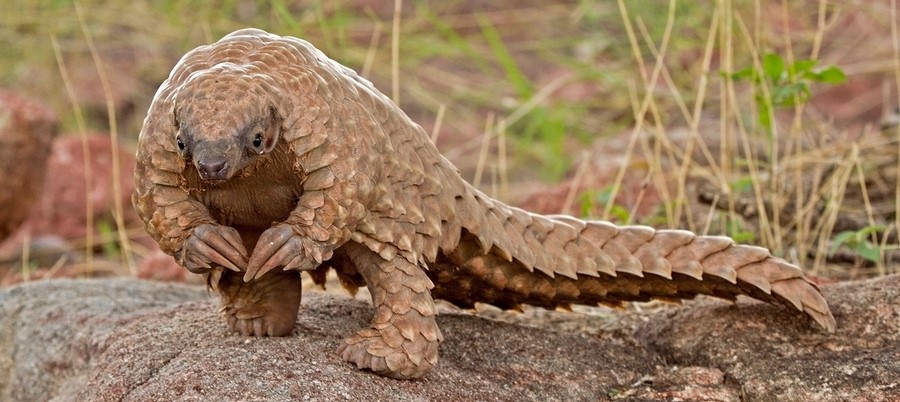Kei Emmanuel Duku
South Sudan National Wildlife Service (SSWS) has apprehended two individuals suspected of attempting to smuggle pangolins out of the country.
According to Lt. Gen. Aggrey Lasu Wani, the Assistant Director General for Law Enforcement at the National Wildlife Service, one suspect was arrested at Juba International Airport last month, while the other was apprehended at the Nimuel-Elegu Border Post in Northern Uganda last year.
Wani stated that since the service intensified its efforts against wildlife trafficking, a total of four pangolins have been seized from smugglers at various exit points.
“We seized one last year, and this year three were arrested. The most recent arrest was made in the forest, and we decided to release the pangolin back into the wild as it was still small,” he said.
He further added that investigations are underway and once complete, the suspects will be presented before courts, and those found guilty will be sent to prison.
The International Union for Conservation of Nature Red List classifies all eight pangolin species as threatened with extinction due to overexploitation and high global demand. The demand for pangolin products is driven by the belief in their medicinal properties, according to Wani.
“Most South Sudanese citizens are unaware of the economic value of pangolins,” he added. “The high demand for these animals outside South Sudan has led to illegal smuggling.”
Colonel John Chol Adui, Operations Commander of the SSWS, said in the last year they have achieved convictions in several wildlife poaching cases where a total of 46 cases have been referred to the courts, with six resulting in government victories. The remaining cases are still pending.
Of the six resolved cases, nine poachers were found guilty and sentenced to varying jail terms.
The minimum sentence was six months, while others received sentences of six to eight months depending on the severity of the offense.
Adui noted that some of the registered cases occurred in Nimule and Torit in the Eastern Equatoria State, as well as in the Lake States.
The pangolins seized at the airport and border areas originated from the Lake States and Jonglei Land Scape Areas, known for their humid wetland climate.
Globally, pangolins are smuggled for their meat, scales, and other body parts, which are believed to have medicinal properties.
Maj. Joseph Lumoro Thomas, Director of Public Relations for the National Wildlife Service, confirmed that most pangolins from South Sudan were destined for Asian countries via Uganda and the Mombasa port in Kenya.
He urged the local population to denounce illegal poaching and wildlife trafficking and focus on wildlife conservation as a means of diversifying the economy through tourism.
Pangolins from Africa are the most heavily trafficked mammals to Asia. These elusive creatures are in high demand in countries like India, China, and Vietnam.
Their meat is considered a delicacy, while their scales, resembling fingernails, are used in traditional medicine to treat a variety of ailments, from asthma to rheumatism and swelling.
In other countries like America pangolin skins, are used to make leather products such as boots, bags, and belts. Despite being protected under both national and international laws, the illegal trade in pangolins has surged in recent years due to increasing demand.




